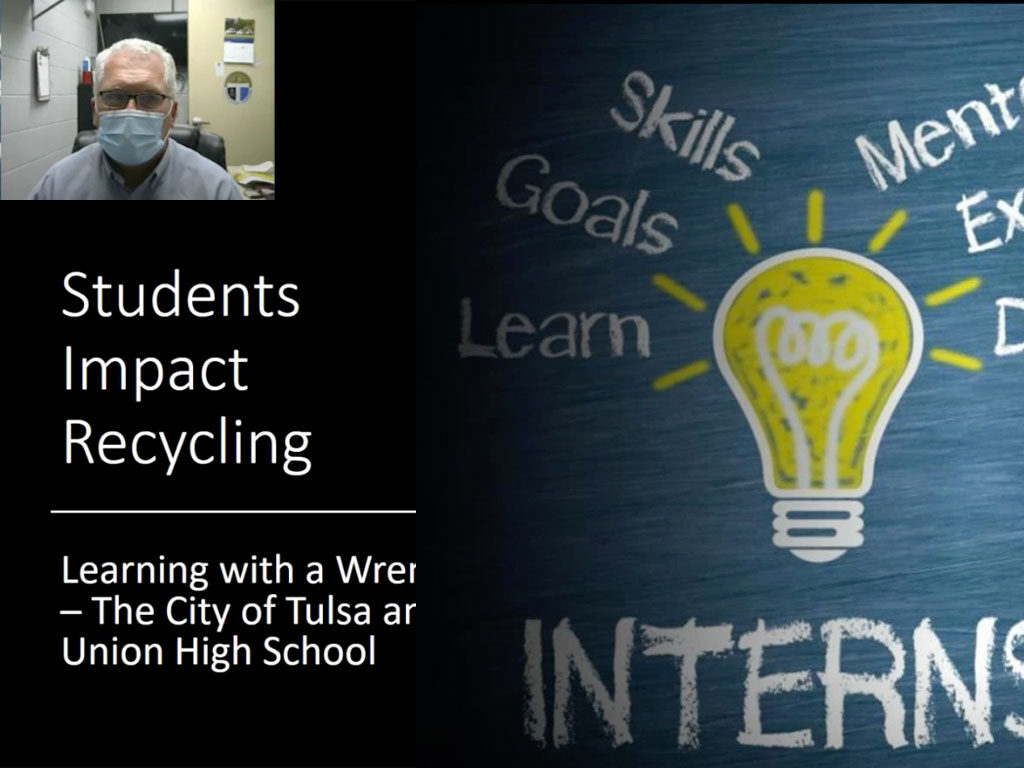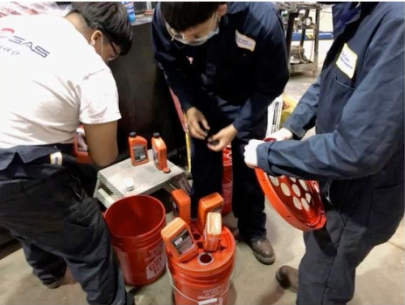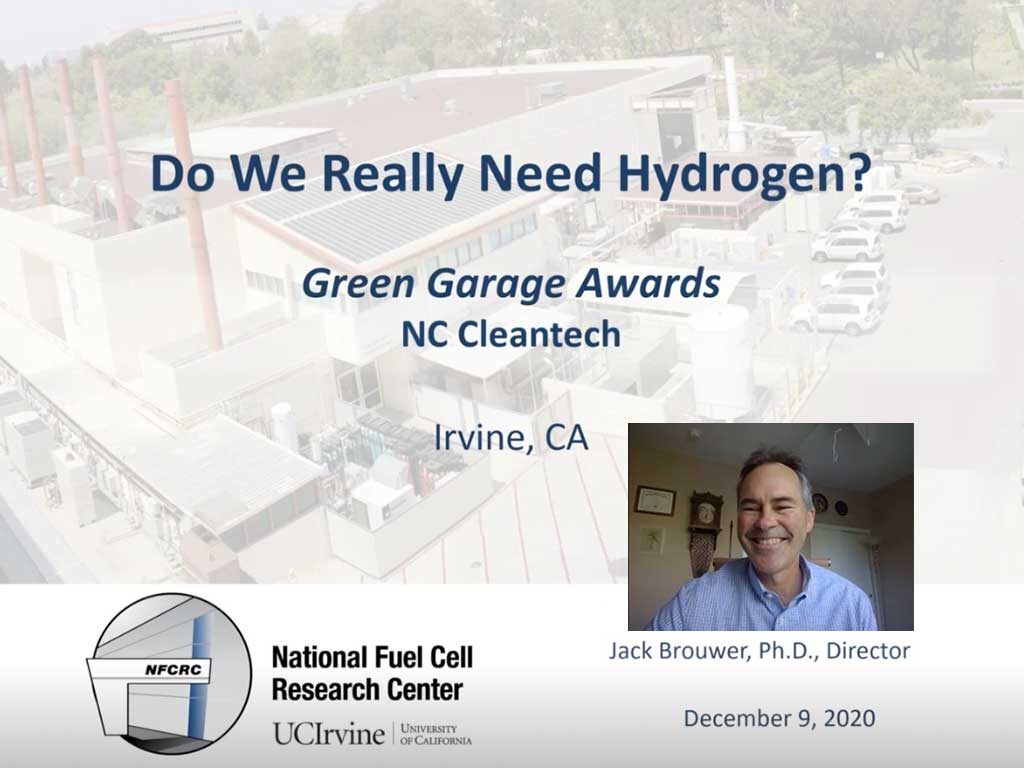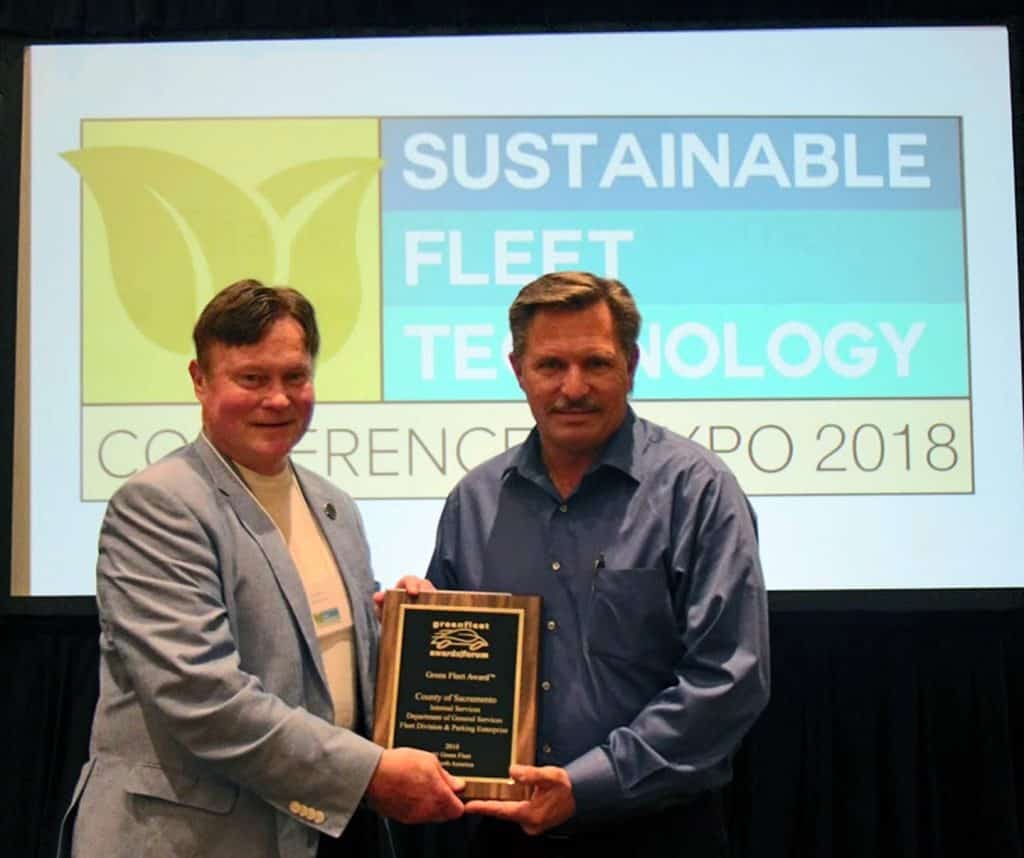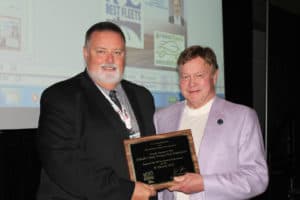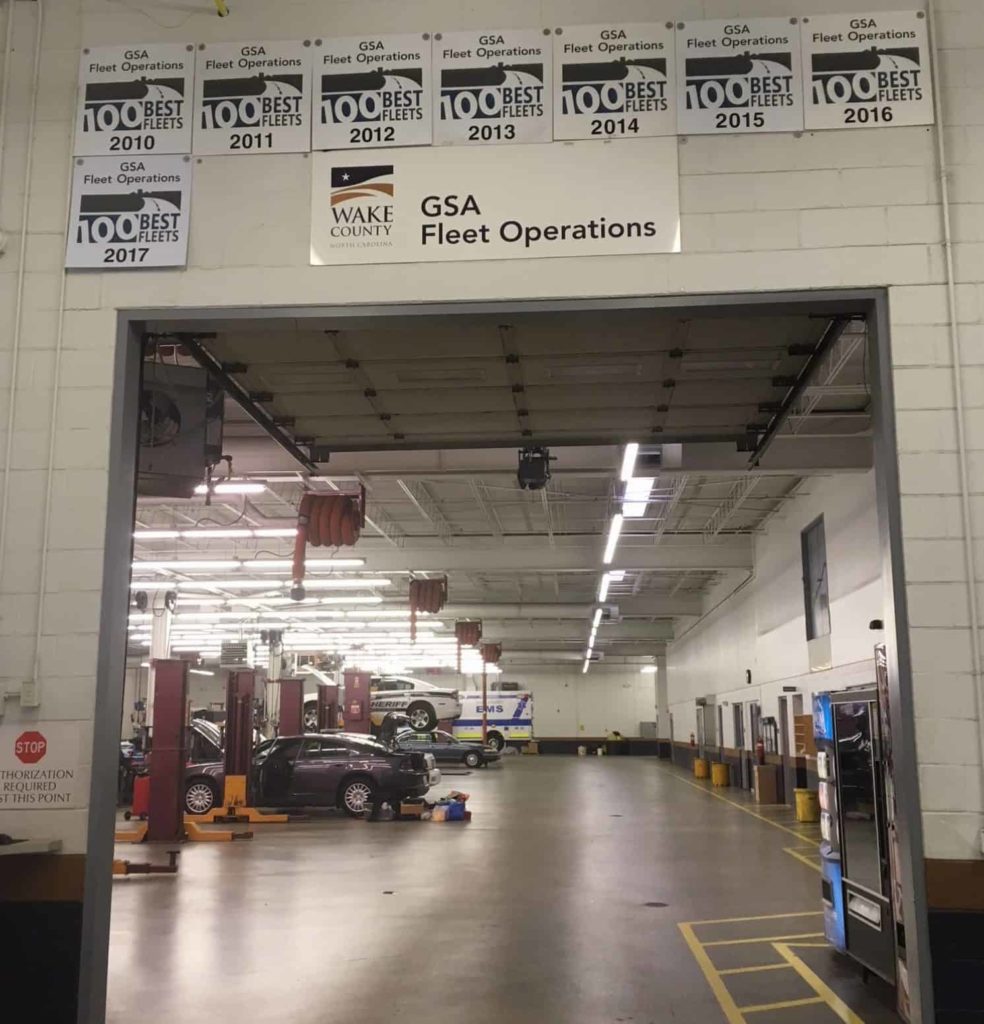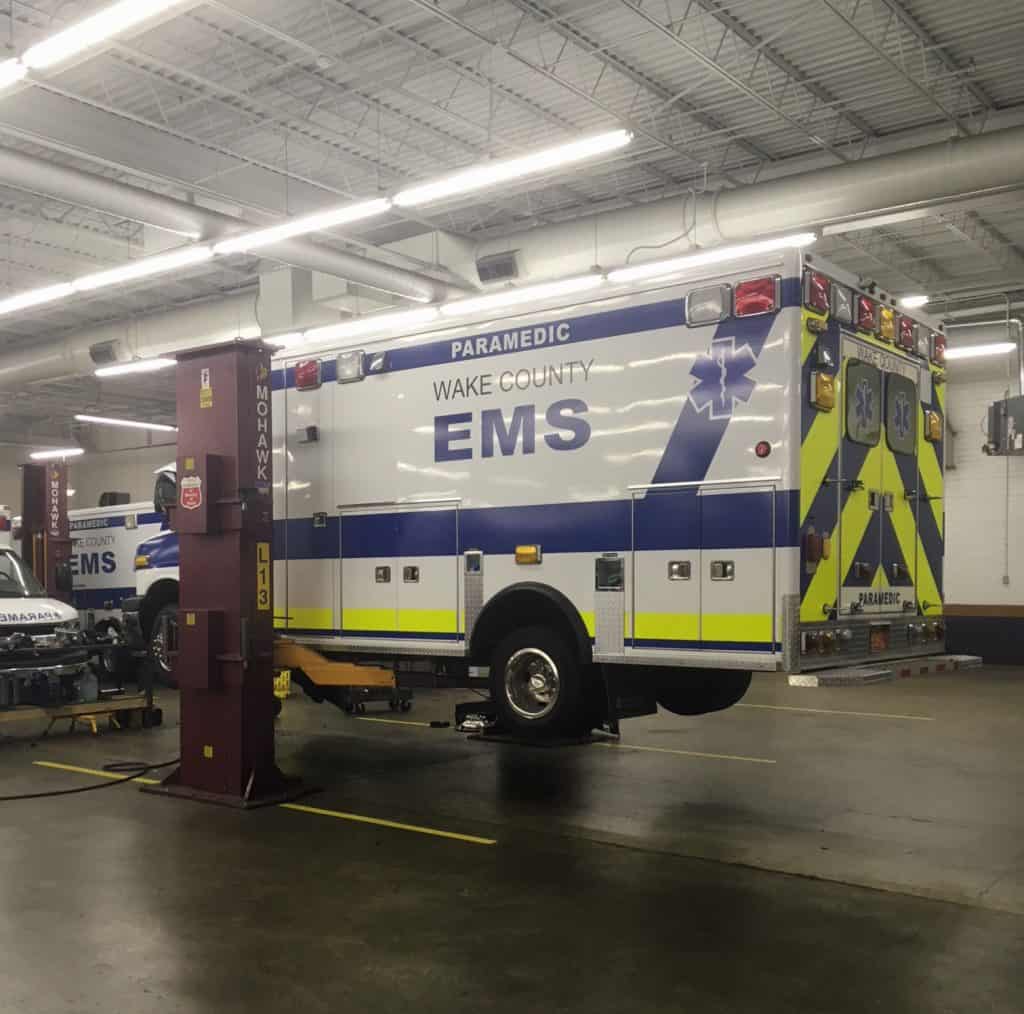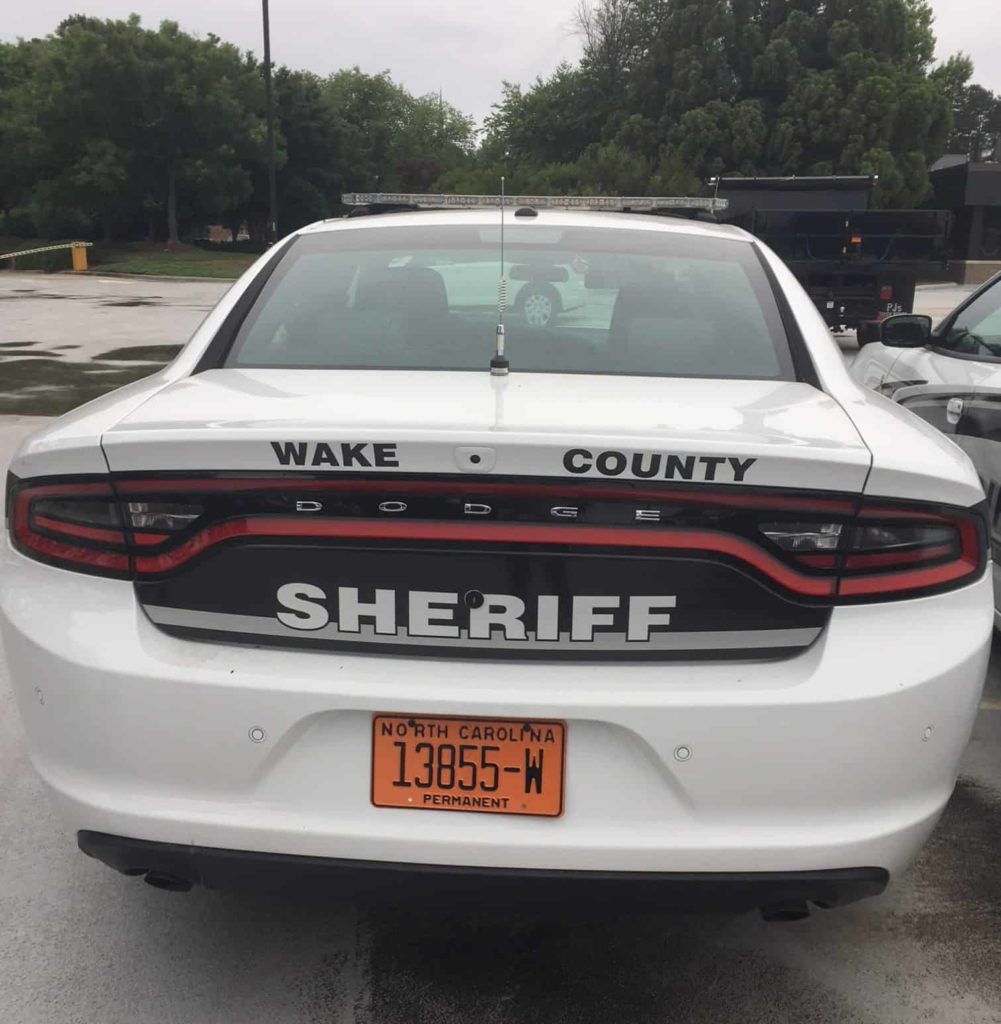![]()
![]()
The North Carolina Clean Energy Technology Center (NCCETC) welcomed more than 350 registered attendees in Durham, NC for the 2022 Sustainable Fleet Technology Conference & Expo. The conference showcased the latest and greatest technologies in the biofuels, electric, natural gas and propane arenas – including everything from Progress Solar’s latest mobile solar electric vehicle (EV) charging model to the diverse display of alternative fuel vehicles and other clean transportation technologies.
![]() Over 80 speakers from a variety of backgrounds presented their ideas and best practices during the conference – highlighting the leading edge of sustainable fleet practices and clean transportation opportunities – including fleet managers, technicians, company presidents and CEOs, university professors, researchers, analysts, nonprofit managers, motivational speakers and more. “It was inspiring to see professionals from different industries and backgrounds coming together to exchange ideas for improving the sustainability of transportation in our state and beyond,” said Heather Brutz, Director of the NCCETC Clean Transportation Program.
Over 80 speakers from a variety of backgrounds presented their ideas and best practices during the conference – highlighting the leading edge of sustainable fleet practices and clean transportation opportunities – including fleet managers, technicians, company presidents and CEOs, university professors, researchers, analysts, nonprofit managers, motivational speakers and more. “It was inspiring to see professionals from different industries and backgrounds coming together to exchange ideas for improving the sustainability of transportation in our state and beyond,” said Heather Brutz, Director of the NCCETC Clean Transportation Program.
![]() The sixth annual Sustainable Fleet Technology (SFT) Conference was able to return in-person in 2022 for the first time since 2019, bringing together fleet professionals and decision-makers to share and discuss evolving clean transportation strategies and technologies. Brutz marked SFT 2022 as a success in meeting this objective. “We’re fostering a community where members support each other during this transition to integrate sustainable operations and technologies into their fleets,” said Brutz.
The sixth annual Sustainable Fleet Technology (SFT) Conference was able to return in-person in 2022 for the first time since 2019, bringing together fleet professionals and decision-makers to share and discuss evolving clean transportation strategies and technologies. Brutz marked SFT 2022 as a success in meeting this objective. “We’re fostering a community where members support each other during this transition to integrate sustainable operations and technologies into their fleets,” said Brutz.
![]() During expo hall hours, attendees were able to network with more than 60 exhibitors while exploring over a dozen vehicles inside and outside of the convention center, with displays including a Chevy Bolt, Ford E-Transit, the City of Charlotte’s Ford F-150 Lightning and Ford Mustang Mach-E, the City of Durham’s bucket truck with a plug-in electric power take-off (PTO) solution by Viatec, Lightning eMotors, Thomas Built Buses Jouley Saf-T-Liner C2 electric school bus, Zero Motorcycles, an Electric Vehicle (EV) Fast Charger from Siemens, Progress Solar’s Mobile Solar Light Tower solution, XL Flee’s Hybrid Electric Upfit, Cenntro’s all-electric Logistar 400 and off-road utility task vehicle ORV, a long-range electric low-speed vehicle from Carolina Industrial Equipment, and more.
During expo hall hours, attendees were able to network with more than 60 exhibitors while exploring over a dozen vehicles inside and outside of the convention center, with displays including a Chevy Bolt, Ford E-Transit, the City of Charlotte’s Ford F-150 Lightning and Ford Mustang Mach-E, the City of Durham’s bucket truck with a plug-in electric power take-off (PTO) solution by Viatec, Lightning eMotors, Thomas Built Buses Jouley Saf-T-Liner C2 electric school bus, Zero Motorcycles, an Electric Vehicle (EV) Fast Charger from Siemens, Progress Solar’s Mobile Solar Light Tower solution, XL Flee’s Hybrid Electric Upfit, Cenntro’s all-electric Logistar 400 and off-road utility task vehicle ORV, a long-range electric low-speed vehicle from Carolina Industrial Equipment, and more.
![]() “This year the expo hall was full of a lot of electrifying conversations,” said John Bonitz, Clean Transportation Specialist at NCCETC. “There’s a lot of opportunities coming from recent federal and state actions encouraging creativity from both the manufacturers and the end-users.”
“This year the expo hall was full of a lot of electrifying conversations,” said John Bonitz, Clean Transportation Specialist at NCCETC. “There’s a lot of opportunities coming from recent federal and state actions encouraging creativity from both the manufacturers and the end-users.”
![]() During the pre-conference day, NAFA Fleet Management Association hosted a Sustainable Fleet Management Program Boot Camp before announcing the 2022 winners of the 100 Best Fleets and Green Fleet Awards. Triangle Clean Cities also hosted the Triangle Electric Vehicle Summit, and Cenntro vehicles were available for the ride & drive outside of the convention center.
During the pre-conference day, NAFA Fleet Management Association hosted a Sustainable Fleet Management Program Boot Camp before announcing the 2022 winners of the 100 Best Fleets and Green Fleet Awards. Triangle Clean Cities also hosted the Triangle Electric Vehicle Summit, and Cenntro vehicles were available for the ride & drive outside of the convention center.
KEYNOTE SPEAKERS & BREAKOUT SESSIONS
![]() Keynote speakers John Konkel, Director of GM Fleet in the Southeast Region, and Robert Gordon, Fleet Management Deputy Director in Dekalb County kicked off day one of SFT 2022.
Keynote speakers John Konkel, Director of GM Fleet in the Southeast Region, and Robert Gordon, Fleet Management Deputy Director in Dekalb County kicked off day one of SFT 2022.
SFT Conference tracks included Vehicle Applications, Fueling Infrastructure, and Planning & Technology. Attendees were able to choose from 12 breakout sessions across the tracks:
- Alternative Fuel Vehicle Emissions Reductions & Case Studies
- Best Practices for Managing Fleet Charging Equipment
- Telematics: Realtime Information for Optimizing Fleet Performance & Safety
- Hydrogen as a Transportation Solution
- Charging Equipment Service & Maintenance for Reliability
- Considerations & Opportunities for Rural Communities
- Alternative Fuel Total Cost of Ownership (TCO) Case Studies
- Alternative Fuel Resilience Considerations
- Funding & Financing Your Sustainable Fleet
- Understanding Batteries
- Considerations in EVSE Networking, Communications & Specifications
- Idle Reduction an Easy Win
![]()
The plenary panel Industry Roundtable: Getting the Win in Sustainable Fleet was moderated by John Davis, Emmy® Award-winning producer, host and creator of MotorWeek. The panel featured Ted Koupparis of General Motors Fleet, Patrick Campbell of Cummins, Dawn Fenton of Volvo Group North America, Stuart Weidie of Alliance AutoGas, and Patrick Scully of Ballard Fuel Systems.
Stuart Weidie spoke of the long future of the internal combustion engine and the viable role for propane and other alternative fuels, a view shared by others on the panel. They examined the current state of sustainable transportation and identified opportunities for overcoming barriers to meeting goals for today and the future.
Dawn Fenton outlined two of the barriers many heavy-duty fleets face when building toward a sustainable fleet: the lack of established infrastructure for refueling alternative fuel vehicles and the need for incentives on local and nationwide scales.
Fenton said recent federal programs like those outlined in the Inflation Reduction Act have the potential to help public fleets overcome these obstacles. The Act includes expansions and extensions of utility-scale tax credits and rebates to incentivize the purchase of electric medium- and heavy-duty trucks as well as its associated refueling infrastructure.
“Many utilities have also established make-ready programs to help lower the cost of infrastructure for heavy-duty fleet vehicles and equipment,” Fenton added.
Day two began with plenary panel Leadership Triple Play featuring Motivational Speaker & Scottsdale-based Leadership Development Coach Ramsey Bergeron of Bergeron Wellbeing, Lonnie Mayne of Red Shoes Living, Inc. and City of Orlando’s Facilities Management Division Manager David Dunn. The panel highlighted principles for fleet managers to employ to help their organizations successfully embrace change and improve results.
![]() Later that day, Robbie Astrop, Sr. Business Development Manager at ABM moderated the plenary panel Industry Roundtable: Delivering Electrons for Transportation Electrification. Speakers on the panel were Todd Ritter, Co-Founder and Chief Marketing Officer of EvStructure; James Tillman, Sr. Vice President Business Development, Brytemove Energy; Sean Ackley, EV & Mobility Segment Lead of Hitachi Energy; and Anne Blair, Electrification Coalition’s Director of Policy.
Later that day, Robbie Astrop, Sr. Business Development Manager at ABM moderated the plenary panel Industry Roundtable: Delivering Electrons for Transportation Electrification. Speakers on the panel were Todd Ritter, Co-Founder and Chief Marketing Officer of EvStructure; James Tillman, Sr. Vice President Business Development, Brytemove Energy; Sean Ackley, EV & Mobility Segment Lead of Hitachi Energy; and Anne Blair, Electrification Coalition’s Director of Policy.
Sean Ackley, an engineering graduate of NC State University, has had a career focus on electrical infrastructure technologies and execution projects. As Hitachi America’s resident expert on EV technologies, Ackley leverages his background in cloud managed services, product development, testing interoperability, and construction project management in facilitating critical thinking around the transition of large fleets to electric powertrain.
Ackley knows the transition to alternative fuel of large fleets is no small feat and he expressed that during the panel. “It’s a whole ecosystem,” said Ackley. “We’re changing the world.”
Ackley stressed the importance of future-proofing technology to support the expansion of infrastructure and equipment as it evolves. “Start early, think ahead, and get creative,” Ackley advised when asked about specific strategies for load management and deployment.
Overall, the panelists agreed that transitioning fleets to electric vehicles is a multi-aspect process that involves planning, coordination, maintenance, strategies for managing electrical load, and more. The roundtable discussion focused on charging options, use cases, policies and strategies to meet today’s needs, as well as what is needed to further transportation electrification.
![]() Industry Roundtable: Original Equipment Manufacturer (OEM) Electric Vehicle Portfolio Planning was the conference’s final plenary panel and joined together several major OEMs to share their plans and investments related to bringing a light-duty EV line-up to market from what is available to what is coming.
Industry Roundtable: Original Equipment Manufacturer (OEM) Electric Vehicle Portfolio Planning was the conference’s final plenary panel and joined together several major OEMs to share their plans and investments related to bringing a light-duty EV line-up to market from what is available to what is coming.
”A lot of OEMs have been announcing major developments in regards to electric vehicle offerings within their portfolio,” said Brutz, who moderated the panel’s speakers: Bryan Chapman, Southeast Government Sales Account Manager, Stellantis NA; Ted Koupparis, Sales Enablement Manager, General Motors Fleet; James Morgan, Government Sales Manager, Ford Motor Company; Mark Namuth, Manager, Fleet Commercial Sales, Nissan; and Scott Bargatze, Southeast Commercial Sales Manager, Nissan.
The NCCETC hosts the annual Sustainable Fleet Technology Conference as part of its mission to advance a sustainable energy economy by educating, demonstrating and providing support for clean energy technologies, practices and policies.
PowerPoint presentations will be available in the coming weeks at www.SustainableFleetExpo.com. Stay tuned for next year’s conference dates. Don’t miss out on future updates for the 2023 Sustainable Fleet Technology Conference – sign up for the clean transportation newsletter now!


 Each SFTWS session included in-depth presentations from fleets honored in
Each SFTWS session included in-depth presentations from fleets honored in 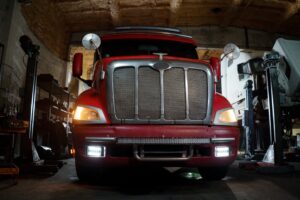 Fleet managers can learn more about the comprehensive involvement needed to plan, coordinate, budget and execute fleet electrification from a panel of experts in the session
Fleet managers can learn more about the comprehensive involvement needed to plan, coordinate, budget and execute fleet electrification from a panel of experts in the session  The
The 